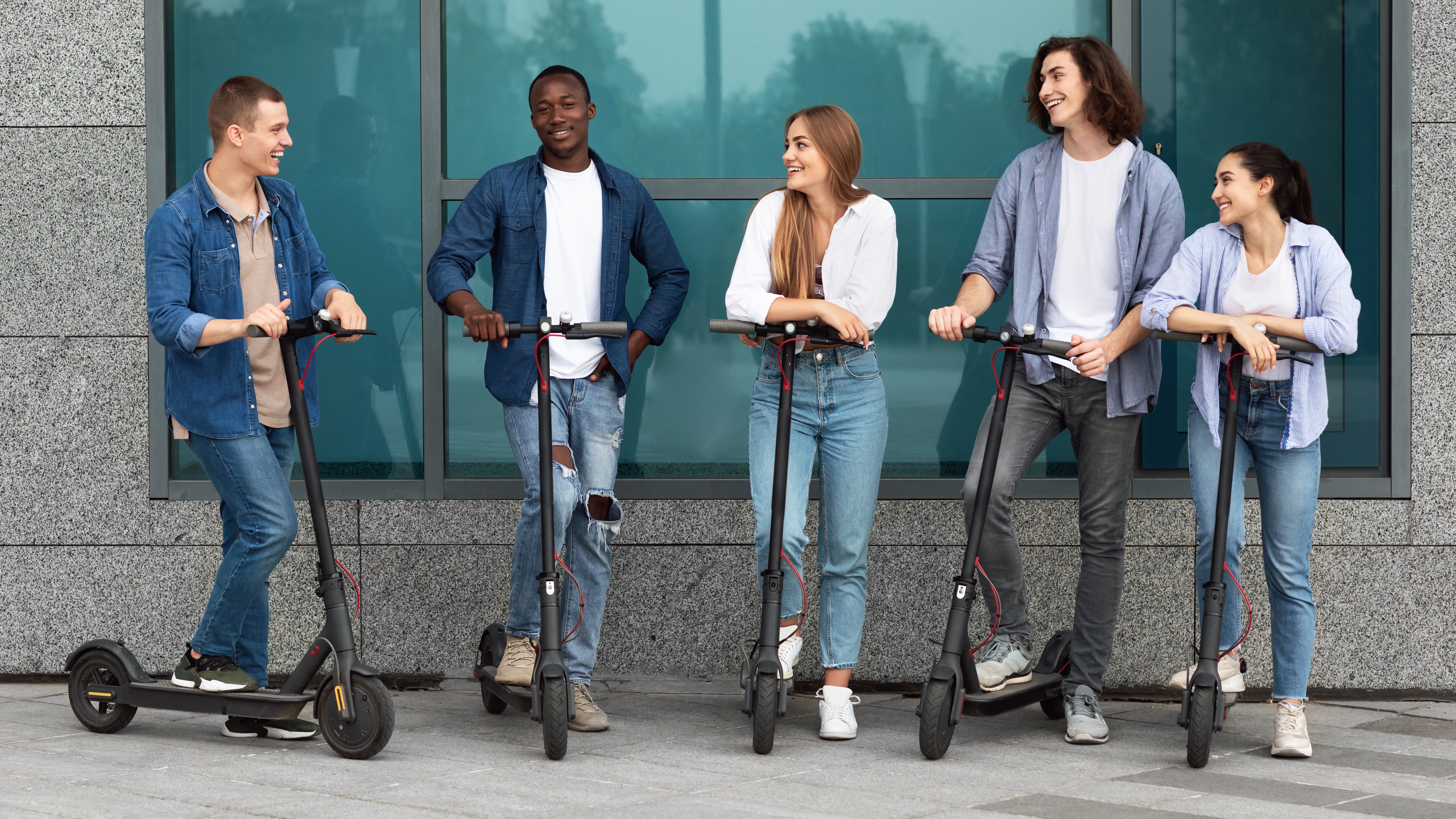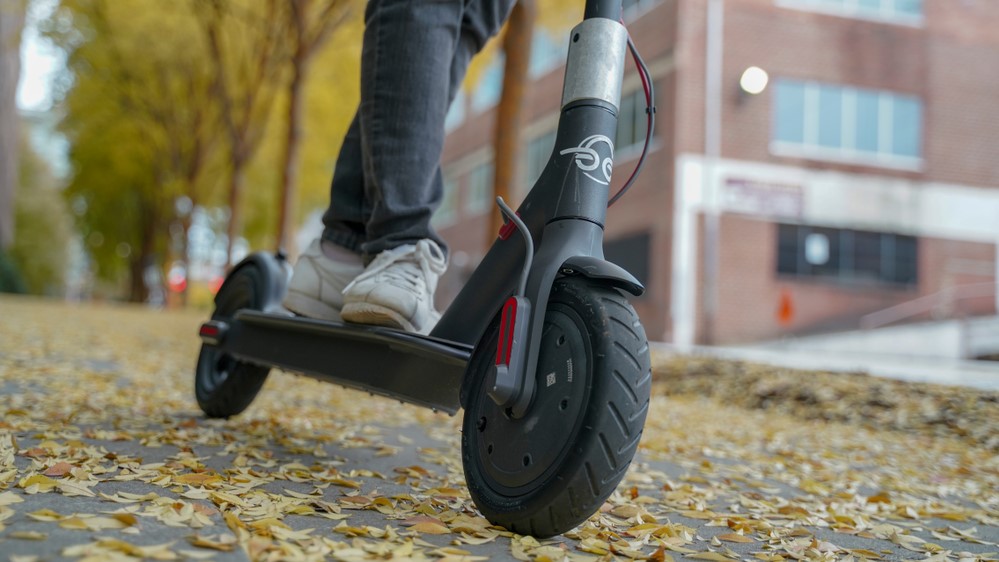Electric scooters are available to hire, but you can't ride your own yet... right?

Sign up for breaking news, reviews, opinion, top tech deals, and more.
You are now subscribed
Your newsletter sign-up was successful
It’s now legal to ride electric scooters on public roads, cycle paths and lanes in the UK, but only if they’ve been rented as part of an authorised hire scheme. If you want to have your own scooter for personal use, you’re out of luck – but that might change very soon.
To find out more about the future e-scooter ownership, TechRadar spoke to Tom McPhail, director of public affairs at Pure Electric. Pure sells electric bikes and scooters, and has recently opened 11 new stores throughout the UK.
We started by asking whether the introduction of trial hire schemes might lead to confusion, and people mistakenly believing they’ve been given the green light to take their own scooters out on the streets.
McPhail says that’s definitely a risk, but he doesn’t believe it will be enough to turn local authorities off scooters, and whatever teething problems we see in the coming months, the introduction of hire schemes is a step in the right direction for private ownership.
"I think that the [Department for Transport] was right to do trials, rather than just throwing their hands in the air," he says.
"There’s a complicated overlap of legislation between the Highways Act and the Road Traffic Act that means that electric scooters are currently legally treated as if they were motorcycles. And that means insurance, it means vehicle registration, it means helmets, and that’s bonkers clearly, so something has to change.

"So if you’re then changing legislation, it makes sense to ask yourself ‘What exactly are we going to change for, and what are we going to change to?’ And there is a spectrum of micro mobility devices out there, like skateboads, balance boards, Segways – some have handlebars, some don’t – you’ve got cargo bikes, you’ve got electric bikes that are currently designated as EAPCs (effectively like bicycles, with a speed and power cap on the motors).
Sign up for breaking news, reviews, opinion, top tech deals, and more.
"So I absolutely sympathise with the government saying ‘OK, we kind of know where we want to get to […] but to get there we need to work through some methods first – what ‘good’ looks like, what should be allowed and what shouldn’t.”
Scooters being ridden on pavements at high speeds is undoubtedly a bad idea, “So a trial on a rental basis – very controlled, controlling which scooters are able to participate – I get all of that.”
Your own ride
However, renting an electric scooter and collecting it from a dock isn’t going to be convenient for everyone. Picking one up at a railway station to travel the last mile of your journey might be ideal, but if there isn’t a dock on your doorstep, you’ll be disinclined to seek one out for other journeys.
That’s not the only option, though. As McPhail explains, you could also borrow a scooter on a long lease, which would mean it was effectively rented, but for your exclusive use – and it’s likely to be possible very soon.

“Having a scooter at home, parked by the front door, that you charge overnight and is effectively free to use would make a lot more sense,” says McPhail, “So we went to the DFT and we talked about that and they said ‘Yes, you’re right! Well, we’d be very happy to accommodate that,’ and they’ve referenced it in the papers – they’ve put out a long lease model. Technically it’s a rental contract, but for all intents and purposes individuals will own a scooter – so we’d be selling them a scooter – but they only get a lease arrangement for the duration of the trial and then they get to keep the scooter afterwards.”
It would be basically the same as the hire purchase schemes already available for cars, where you pay an initial deposit, then make a payment each month and have the option to buy the vehicle at the end of the hire period for a nominal fee.
Gathering speed
If you like that idea, you might be able to sign up very soon. The government has certainly moved quickly to begin hire schemes, having announced its plan to fast-track the process in May, sped through a consultation process, and given companies the green light to begin operating just two months later.
“There’s a lot of momentum right now,” McPhail says. “We’ve got transport committee enquiries, we’ve got the Department for Transport’s call for evidence, as well as a separate quick consultation on trials. I know that there’s an all-party parliamentary group starting up for micro-mobility; the government is throwing money at local authorities for infrastructure development schemes, with a great deal of enthusiasm across local authorities and businesses.”
He believes that while this momentum was beginning to build already, due need to tackle carbon emissions, congestion and parking issues – the coronavirus pandemic suddenly shifted sustainable transport to the top of the agenda.

“All of a sudden, public transport was down to around 10-20%, and there’s a real anxiety that if policymakers don’t pick something, then the release mechanism will be for everyone to just jump back in their cars when they look at those empty roads.”
The timing is also important because people are much more likely to get into the habit of riding electric scooters during the summer months then when it’s cold and damp.
For the time being, though, taking a privately owned scooter out on the roads is still against the law – and apart from the potential £300 penalty and six points on your driving licence (if you have one), breaking the rules could mean an even longer wait before they’re legalised as it disturbs the trials.
Best keep your thumb off the throttle for now – but be prepared to put your best foot forward very soon.
- Check out our guides to the best treadmill deals and exercise bike deals

Cat is TechRadar's Homes Editor specializing in kitchen appliances and smart home technology. She's been a tech journalist for 15 years, having worked on print magazines including PC Plus and PC Format, and is a Speciality Coffee Association (SCA) certified barista. Whether you want to invest in some smart lights or pick up a new espresso machine, she's the right person to help.